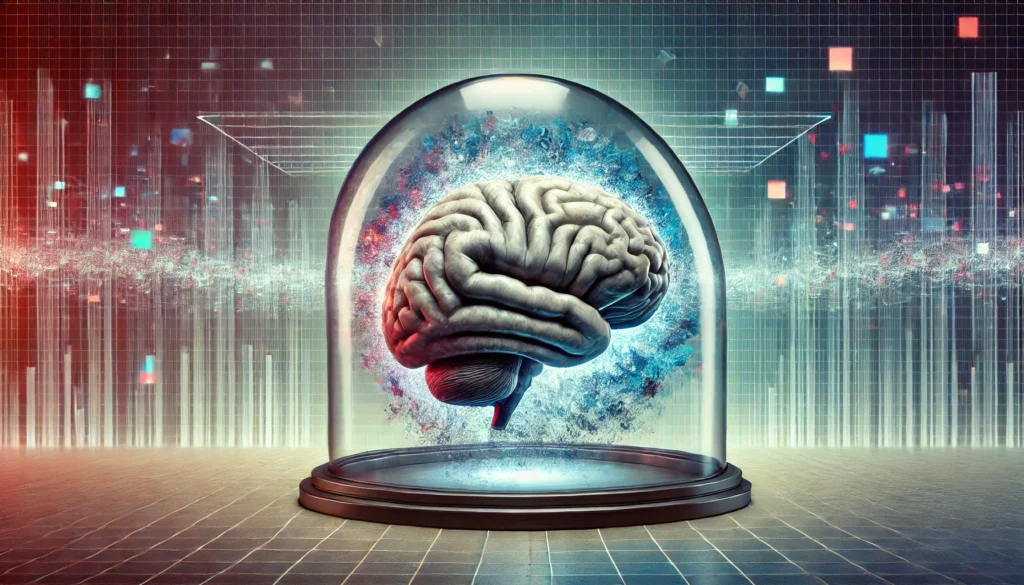In today’s fast-paced world, understanding cognitive ability has become more crucial than ever. Cognitive ability encompasses the mental capacities that govern reasoning, problem-solving, planning, abstract thinking, complex idea comprehension, and learning from experience. As more and more people lack this cognitive ability or face challenges in maintaining it, it’s vital to delve deeper into its intricacies. In this article, we will explore the essence of cognitive ability, examine current trends indicating why people are losing this cognitive ability, and discuss the downsides of cognitive ability tests.
You may also like: Tips to Improve Low Average Memory Performance
What is Cognitive Ability?
Cognitive ability is a broad term that describes the various mental processes by which knowledge and understanding are developed. These abilities are critical for daily functioning and involve several facets, including:
Memory
Memory is the faculty by which the brain encodes, stores, and retrieves information. It plays a vital role in learning and adaptation, allowing individuals to retain experiences and use them for future decision-making. Memory can be divided into short-term and long-term, each serving different purposes and utilizing distinct neural pathways.
Attention
Attention is the cognitive process of concentrating on specific stimuli while ignoring others, enabling efficient information processing. It is crucial for tasks requiring focus, such as studying or driving. Distractions and interruptions can hinder attention, affecting overall cognitive performance and productivity.
Language
Language is a complex cognitive skill that involves understanding and producing spoken and written communication. It is fundamental to human interaction and is deeply intertwined with culture and social behavior. Language development begins early in life and continues to evolve with exposure and practice.
Problem-solving
Problem-solving is the ability to identify solutions to complex issues, requiring critical thinking and creativity. It involves various stages, including defining the problem, generating potential solutions, and evaluating their effectiveness. Effective problem-solving skills are essential for personal and professional success.
Decision-making
Decision-making is the process of making choices by identifying options and assessing the potential outcomes. It involves weighing risks and benefits, often under conditions of uncertainty. Good decision-making skills are crucial for navigating complex situations and achieving desired goals.
These cognitive processes are essential for learning, reasoning, and being able to adapt to new situations.
The Decline of Cognitive Ability: A Growing Concern
Recent trends suggest that more and more people lack this cognitive ability, raising concerns among psychologists and educators. Various factors contribute to this decline:
Technological Overload
The omnipresence of technology in our lives has significantly altered how we process information. The constant influx of notifications demands our attention and forces us to multitask, which can fragment our focus and reduce our ability to engage deeply with tasks. This shift towards consuming bite-sized content might lead to a superficial understanding of topics, as we lose patience for more comprehensive information.
Moreover, the habit of scrolling through social media or other digital platforms can rewire our brains, promoting instant gratification over sustained cognitive engagement. This change in attention patterns can have long-term effects on our cognitive abilities, particularly affecting our concentration and memory retention.
While technology offers numerous benefits, its overuse can lead to digital fatigue and cognitive overload. To mitigate these effects, it’s essential to practice mindful technology use, ensuring that digital interactions enhance rather than detract from cognitive functioning.

Sedentary Lifestyle
A sedentary lifestyle, prevalent in modern society, is not just detrimental to physical health but also impairs cognitive functions. Physical activity increases blood flow to the brain, delivering essential oxygen and nutrients that support cognitive processes. Exercise also stimulates the production of neurotrophic factors, which are vital for brain plasticity and memory function.
In contrast, prolonged inactivity can lead to cognitive decline, as the brain receives fewer resources needed for optimal functioning. Regular physical activity, therefore, is crucial for maintaining brain health and cognitive abilities. Activities like walking, swimming, or even gardening can have profound effects on cognitive resilience.
Adopting a more active lifestyle can counteract the negative impacts of prolonged sitting. Incorporating short breaks for movement throughout the day can help maintain cognitive sharpness and improve overall well-being.
Poor Nutrition
Diet plays a pivotal role in brain health. A diet high in processed foods and low in essential nutrients can adversely affect cognitive function. Nutrients like omega-3 fatty acids, found in fish, and antioxidants, found in fruits and vegetables, are essential for maintaining cognitive abilities and protecting the brain from oxidative stress.
Conversely, diets rich in sugars and unhealthy fats can lead to inflammation and insulin resistance, which are linked to cognitive decline. Eating a balanced diet that includes a variety of nutrients supports brain health and enhances cognitive performance.
Incorporating brain-boosting foods into daily meals can improve memory, focus, and overall cognitive function. Paying attention to dietary choices is a simple yet effective way to support cognitive health throughout life.
Downsides of Cognitive Ability Tests
Cognitive ability tests are often used in educational and professional settings to assess an individual’s mental capabilities. However, these tests come with their own set of challenges and limitations:
Cultural Bias
Many cognitive tests have been criticized for cultural bias, as they may not accurately reflect the abilities of individuals from diverse backgrounds. Tests often incorporate language, concepts, and contexts familiar to specific cultural groups, potentially disadvantaging those from different backgrounds. This can lead to unfair assessments and misinterpretations of one’s cognitive abilities, impacting educational and occupational opportunities.
Efforts to develop more inclusive tests are ongoing, with a focus on creating assessments that minimize cultural and linguistic biases. This includes using more universal content and adapting tests to account for diverse cultural experiences.
Awareness of these biases is crucial for educators and employers who rely on cognitive tests for decision-making. By understanding these limitations, they can interpret results more effectively and make more equitable choices.
Narrow Scope
Standardized tests often focus on specific cognitive skills, overlooking other valuable abilities such as creativity, emotional intelligence, and practical problem-solving skills. These tests typically emphasize memory, reasoning, and verbal abilities, which may not capture the full range of an individual’s cognitive potential.
By excluding non-traditional cognitive skills, tests may fail to recognize talents in areas like innovation, empathy, and adaptability, which are increasingly valued in today’s dynamic world. This narrow scope can lead to a one-dimensional view of intelligence, neglecting the diverse ways people can excel.
In response, there’s a growing movement to develop assessments that incorporate a broader range of cognitive abilities. These comprehensive evaluations aim to provide a more holistic view of an individual’s cognitive strengths and weaknesses.
Stress and Anxiety
The pressure of performing well on cognitive tests can induce stress and anxiety, which may hinder an individual’s true performance and skew results. High-stakes testing environments often exacerbate these feelings, leading to test anxiety that can impair cognitive function during assessments.
Stress-related symptoms, such as difficulty concentrating and memory lapses, can negatively affect test outcomes, potentially underestimating an individual’s actual cognitive abilities. This can have significant implications for educational placements and career opportunities.
To address these issues, some institutions are exploring alternative assessment methods that reduce stress and provide a more supportive testing environment. These approaches aim to create a more accurate representation of an individual’s cognitive abilities without the added burden of anxiety.

Enhancing Cognitive Abilities: Practical Tips
Despite the challenges, there are several strategies one can employ to enhance cognitive abilities:
Engage in Regular Physical Activity
Regular exercise is not only beneficial for physical health but also plays a crucial role in maintaining and improving cognitive functions. Activities like aerobic exercises, yoga, and strength training have shown to boost brain health by increasing blood flow, reducing stress, and promoting the growth of new brain cells.
Consistent physical activity can improve memory and cognitive flexibility, enhancing the brain’s ability to adapt to new information and challenges. Exercise also helps regulate mood and reduce anxiety, creating a mental state conducive to learning and problem-solving.
Incorporating a variety of exercises into your routine can maximize cognitive benefits. Finding activities you enjoy can make it easier to maintain a regular exercise schedule, supporting both physical and cognitive health.
Embrace Lifelong Learning
Engaging in continuous learning keeps the brain active and challenged. Whether it’s learning a new language, playing a musical instrument, or taking up a new hobby, these activities stimulate different parts of the brain, promoting neuroplasticity and cognitive resilience.
Lifelong learning fosters a growth mindset, encouraging individuals to embrace challenges and view failures as opportunities to learn. This mindset can enhance problem-solving skills and increase adaptability in an ever-changing world.
Pursuing diverse learning experiences can enrich cognitive abilities and enhance overall quality of life. By staying curious and open to new ideas, you can keep your mind sharp and engaged throughout life.
Mindful Technology Use
While technology can contribute to cognitive decline, it can also be used to enhance cognitive abilities when used mindfully. Apps and games designed to challenge the brain, educational podcasts, and online courses are excellent resources for cognitive improvement.
Setting boundaries around technology use can help prevent digital fatigue and ensure that digital interactions support cognitive goals. Designating tech-free times or spaces can encourage deeper engagement with offline activities and enhance focus and productivity.
By harnessing technology’s potential for learning and personal growth, you can create a balanced approach that supports cognitive health and well-being.
Prioritize Nutrition
Consuming a balanced diet rich in fruits, vegetables, whole grains, lean proteins, and healthy fats is fundamental for brain health. Specific foods like berries, nuts, and fish are particularly beneficial for cognitive function, providing essential nutrients that support memory and focus.
Incorporating a variety of nutrient-dense foods into your diet can provide the building blocks needed for optimal brain function. Staying hydrated is also crucial, as even mild dehydration can impair cognitive performance.
Adopting healthy eating habits can have long-term benefits for cognitive health, enhancing mental clarity and reducing the risk of cognitive decline.
Future Implications and Trends
As awareness of cognitive ability and its importance grows, several trends and implications are emerging:
Advancements in Brain Health Research
The field of neuroscience is rapidly evolving, with new research shedding light on how the brain functions and ways to enhance cognitive abilities. This includes breakthroughs in understanding neuroplasticity, the brain’s ability to reorganize itself by forming new neural connections, which is crucial for learning and adaptation.
Emerging technologies, such as brain imaging and neurofeedback, are providing deeper insights into cognitive processes and potential interventions for cognitive enhancement. These advancements hold promise for developing targeted therapies to address cognitive impairments and improve brain health.
Ongoing research continues to uncover the complex interactions between genetics, environment, and lifestyle factors in shaping cognitive abilities. Staying informed about these developments can empower individuals to make informed choices about their cognitive health.
Rise of Nootropics
The use of nootropics, also known as “smart drugs,” is gaining popularity among those looking to boost cognitive performance. These substances, ranging from supplements to pharmaceuticals, claim to enhance memory, focus, and overall cognitive function.
As interest in cognitive enhancement grows, the market for nootropics is expanding, with a wide range of products available. However, the efficacy and safety of these substances vary, and more research is needed to understand their long-term effects.
Individuals considering nootropics should approach them with caution, consulting healthcare professionals and weighing potential benefits against risks. Informed decisions can help ensure safe and effective use of these cognitive enhancers.
Workplace Implications
In the corporate world, cognitive abilities are increasingly valued. Companies are investing in employee wellness programs that include cognitive training and mental health support to foster a more productive and engaged workforce.
As the demand for cognitive skills grows, organizations are recognizing the importance of creating environments that support cognitive development and well-being. This includes offering opportunities for continuous learning and promoting work-life balance.
Employers are also exploring innovative approaches to assess and nurture cognitive abilities, moving beyond traditional testing methods to identify and develop diverse talents. These efforts aim to enhance organizational performance and employee satisfaction.

Conclusion
Understanding cognitive ability is essential for navigating the complexities of modern life. By recognizing the factors contributing to its decline and employing strategies to enhance it, individuals can maintain and even improve their cognitive functions. As research and trends continue to evolve, staying informed and proactive in nurturing cognitive health will be key to achieving personal and professional success.
In a world where more and more people lack this cognitive ability, taking steps to preserve and enhance it becomes not just beneficial but necessary. By understanding the nuances of cognitive ability and its implications, we can better equip ourselves to face the challenges of today and tomorrow. Embracing a holistic approach to cognitive health can empower individuals to reach their full potential and lead fulfilling lives.
Further Reading:
Cognitive Capabilities and Limitations
Important Note: The information contained in this article is for general informational purposes only, and should not be construed as health or medical advice, nor is it intended to diagnose, prevent, treat, or cure any disease or health condition. Before embarking on any diet, fitness regimen, or program of nutritional supplementation, it is advisable to consult your healthcare professional in order to determine its safety and probable efficacy in terms of your individual state of health.
Regarding Nutritional Supplements Or Other Non-Prescription Health Products: If any nutritional supplements or other non-prescription health products are mentioned in the foregoing article, any claims or statements made about them have not been evaluated by the U.S. Food and Drug Administration, and such nutritional supplements or other health products are not intended to diagnose, treat, cure, or prevent any disease.


